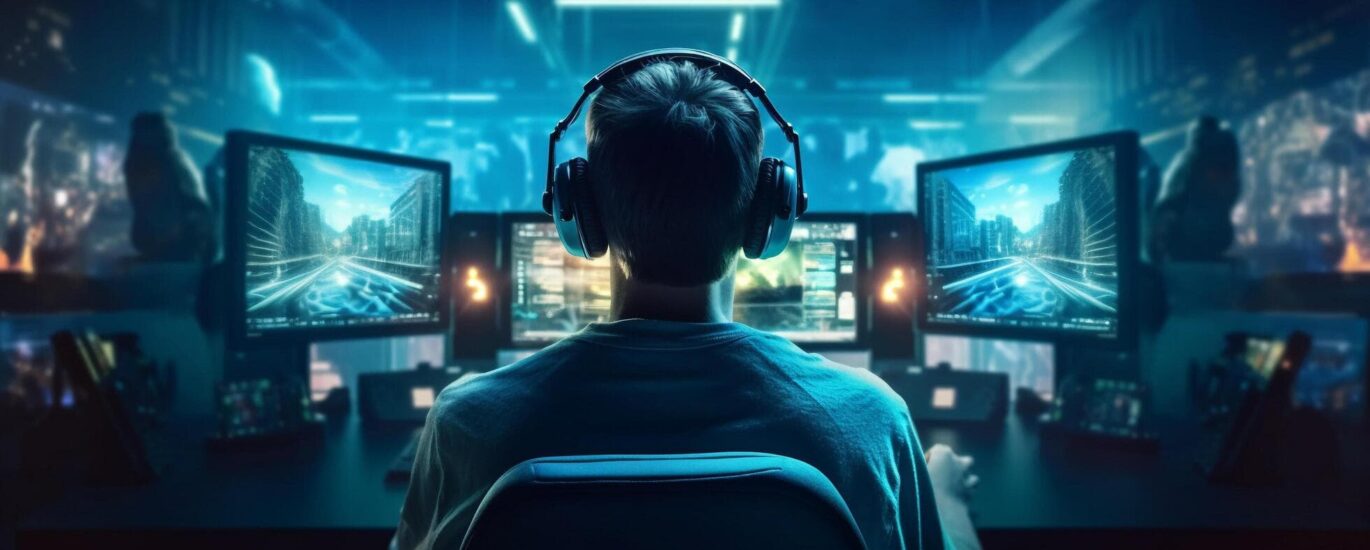


Video Games

The modern world is increasingly faced with the question of how to balance an active lifestyle with new interests like esports. Gaming and physical education — two sides of the same coin — may seem opposites at first glance, but is there room for them to complement each other? Can gaming be part of a healthy lifestyle? Let’s break it down.
Esports has become a huge part of the global entertainment industry. In the Czech Republic, as in other countries, professional players participate in tournaments, competing for large cash prizes and global recognition. However, beyond recognition and financial benefits, there are other important aspects to consider.
Gaming, especially esports, requires significant mental and emotional effort. Over the long hours of gameplay, players develop skills such as strategic thinking, reaction time, focus, and the ability to make quick decisions. This is a real challenge for the brain, which can be compared to intensive training aimed at improving cognitive functions. Interestingly, as in physical education, success in gaming requires regularity and practice.
Nevertheless, many people perceive gamers as “those who sit still,” but it is important to note that esports includes not only physical preparation but also mental aspects. Unlike traditional sports, which focus on physical endurance, esports emphasizes cognitive and psycho-emotional aspects.
When it comes to physical education, there is an increasing opinion that it is an integral part of a healthy lifestyle. Regular physical activity helps strengthen the cardiovascular system, develop muscles, increase flexibility and endurance. People who engage in sports tend to have better health indicators, increased immune activity, and improved psychological well-being. Moreover, physical education helps maintain a healthy weight and reduces the risks of chronic diseases, such as diabetes, hypertension, or osteoporosis.
However, many people may struggle with a lack of motivation to engage in sports. The fast pace of modern life demands a lot of effort in different areas, and sometimes there is no time left for physical education. This is where gaming can step in as the activity that inspires people to achieve new goals.
With the development of technology, the boundaries between physical education and gaming activity are becoming increasingly blurred. Virtual simulators, games with augmented reality elements, and so-called “fitness games” open a new way to combine physical activity with the fun of gaming.
One bright example is the use of VR headsets, which allow users to engage in physical exercises directly in the virtual space. In such games, it is important not only to move but also to interact with the surrounding world, which stimulates motor skills development and improves coordination. For example, in games on the Oculus platform, users can train not only their cognitive abilities but also their physical bodies by performing various exercises.
Moreover, gaming platforms are actively incorporating elements that contribute to physical fitness. For instance, today, nove casino is being developed, where players can find games that allow them to physically activate during the gameplay, such as “virtual workouts” embedded in the platform interfaces. Interaction with such games can serve as an excellent example of how innovations in online entertainment can motivate players to lead a more active lifestyle.
As in any other field, combining gaming and physical education has its pros and cons. On the one hand, gamers can improve their mental abilities, develop focus and reaction, while on the other hand, long hours spent in front of a computer can lead to negative health consequences, such as posture problems or deteriorating eyesight.
In this context, it is important to maintain balance. Games should be part of a healthy lifestyle, not a replacement for physical exercise. Incorporating physical activities, such as outdoor walks, light workouts, or yoga, into one’s routine can be an excellent way to improve overall health without giving up beloved virtual entertainment.
Furthermore, for some people, especially in the digital age, games become a way of socializing, a place to find like-minded individuals and share interests. In this respect, they also have a positive effect on psychological health, helping to fight loneliness and stress.
Can gaming and physical education be combined as part of a healthy lifestyle? The answer is unequivocal: yes, provided that a balance between mental and physical loads is maintained. Esports can certainly become part of an active lifestyle if we treat it as a workout for the mind, but it is important not to forget the physical aspect, which helps keep the body in shape. In the modern world, online entertainment, such as esports and online casinos, can serve as an additional source of motivation for those seeking a balance between entertainment and an active lifestyle.